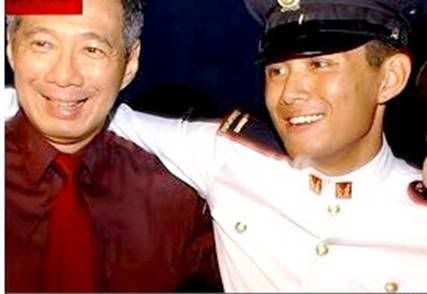 The Li Hongyi incident is no laughing matter but it's good to have a good sense of humour, especially in straight-laced Singapore.
The Li Hongyi incident is no laughing matter but it's good to have a good sense of humour, especially in straight-laced Singapore.
Famous blogger mrbrown and BT writer Jamie Ee have not lost their sense of humour despite the intense public debate on the merits of what Hongyi did recently.
mrbrown's podcast entitled 'Swordsman' is quite funny. Jamie's sarcasm is equally funny as the letter is obviously a spoof on Hongyi's famous letter, which was mentioned in an earlier posting.
Harry Potter and the Letter of Complaint
By JAMIE EE
TO: The Ministry of Magic, Department of the Dark Arts.
CC: All in Hogwarts; All in centaur colony in the Dark Forest; All the giants (at least the ones who can read English).
Re: A complaint about the quality control of Wizarding Officers
Dear Sirs and All,
I am about to disrupt my education at Hogwarts in order to find the Deathly Hallows and launch into a fight to the finish with You-Know-Who, so this may well be my last e-mail sent to you, depending on my fate, which will not be known until tomorrow morning at Borders at 7:01 am. Hopefully, I will come away with only a stern warning.
I am using this last opportunity to issue a letter of complaint about the quality of officers in the wizarding department, especially over the control of He-Who- Must-Not-Be-Named, who has gone missing for 14 years and whose method of transportation during those incidents has yet to be ascertained. Some say he travels by portkey, but others say he uses a Mitsubishi Lancer.
Anyway, I have reported many times that he has gone missing - and sometimes I think he does it to annoy me because he always sneaks back and tries to kill me - but the officials in charge do not seem to want to do anything about it.
In fact, they do not even want to find him and seem to me to be almost afraid of bringing him to justice. This leads some to believe that he is a half-blood princeling who is able to come and go whenever he pleases.
Unfortunately, because I have brought this issue to light, I am accused of being a tattle-tale taking full advantage of the fact that I am Hogwarts principal Dumbledore's favourite student ever.
Because of their ill-feeling towards my perceived hallowed status, they have run gleeful stories about me in the Daily Prophet, implying that I am a hoity-toity smug know-it-all. I feel that this is not fair, especially considering that I am being named while You-Know-Who remains blissfully unexposed. He is a danger to us, and threatens the very foundation upon which our society is built on.
He wants power, which in itself is really not a bad thing if you ask me, but he does it in a rather sneaky way which reminds me of other developing countries which-shall- not-be-named, but that's another story.
So, you leave me no choice but to go after him on my own, on my Nimbus 2000 broomstick. And when I find him I am going to take him down, even if it leads to the death of more than two people whose identities again will not be known until after tomorrow.
Of course, all this leads to the inevitable question of what happens to me. Will I be killed? Will I kill You-Know-Who before he gets a chance to run off without permission again? Because I really feel like killing him. Will he take my car this time? Will my loyal followers be killed too? Will I ride off into the sunset on the back of a centaur? Will I return many years later, appointed to the wizards' council? Will I spend my retirement years investigating letters of complaint like this?
Be patient. Come this time tomorrow, all will be revealed. Chances are the anticipation will be more exciting than the actual result but never mind. I'm not complaining.
Sincerely yours,
Harry Potter
 Singapore's Minister of National Development Mah Bow Tan has said that the government will not interfere in the sizzling property market.
Singapore's Minister of National Development Mah Bow Tan has said that the government will not interfere in the sizzling property market.










